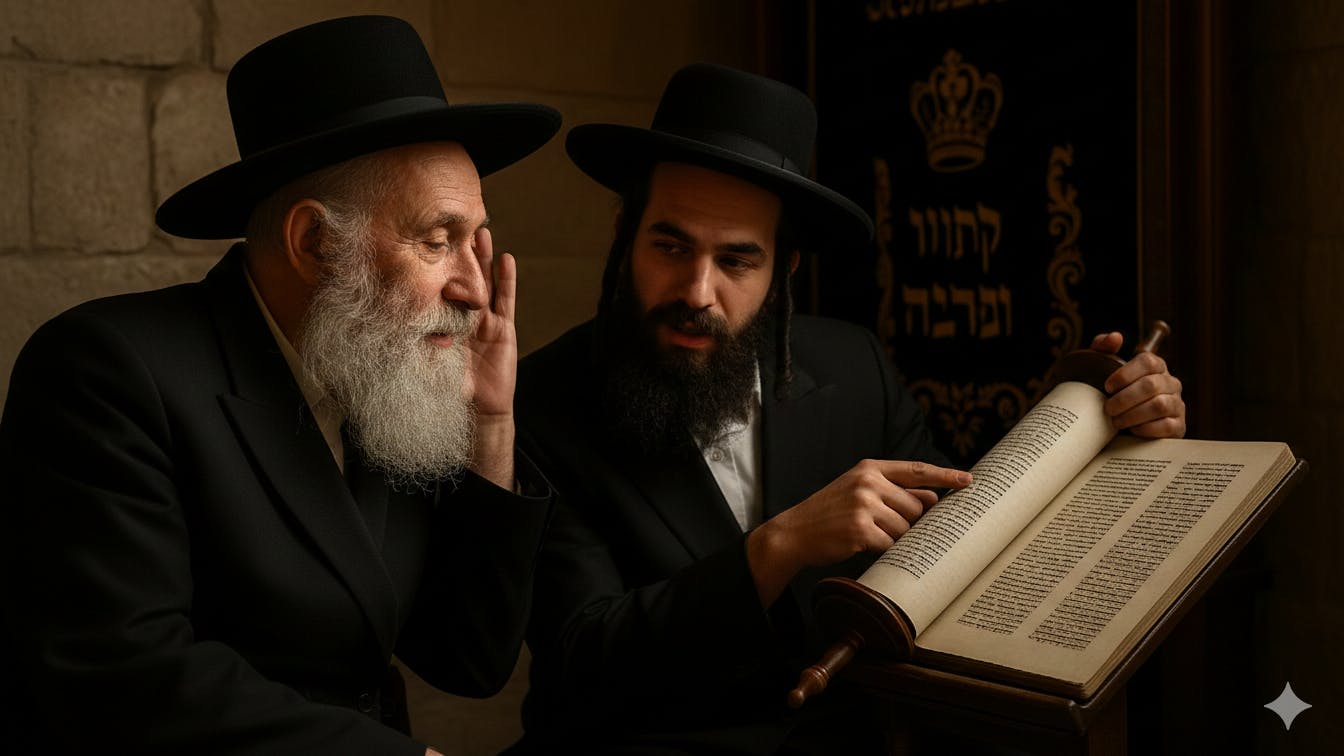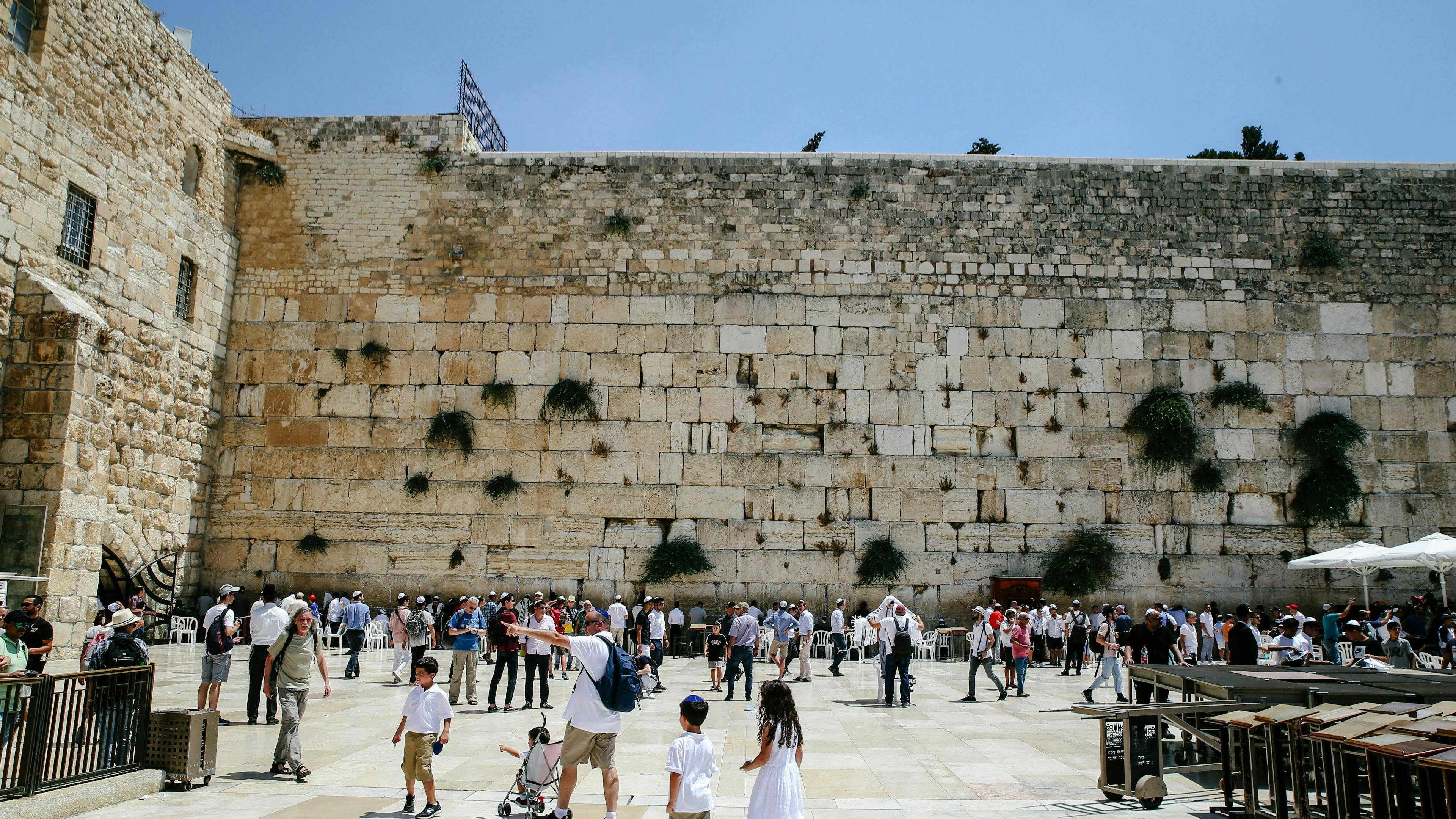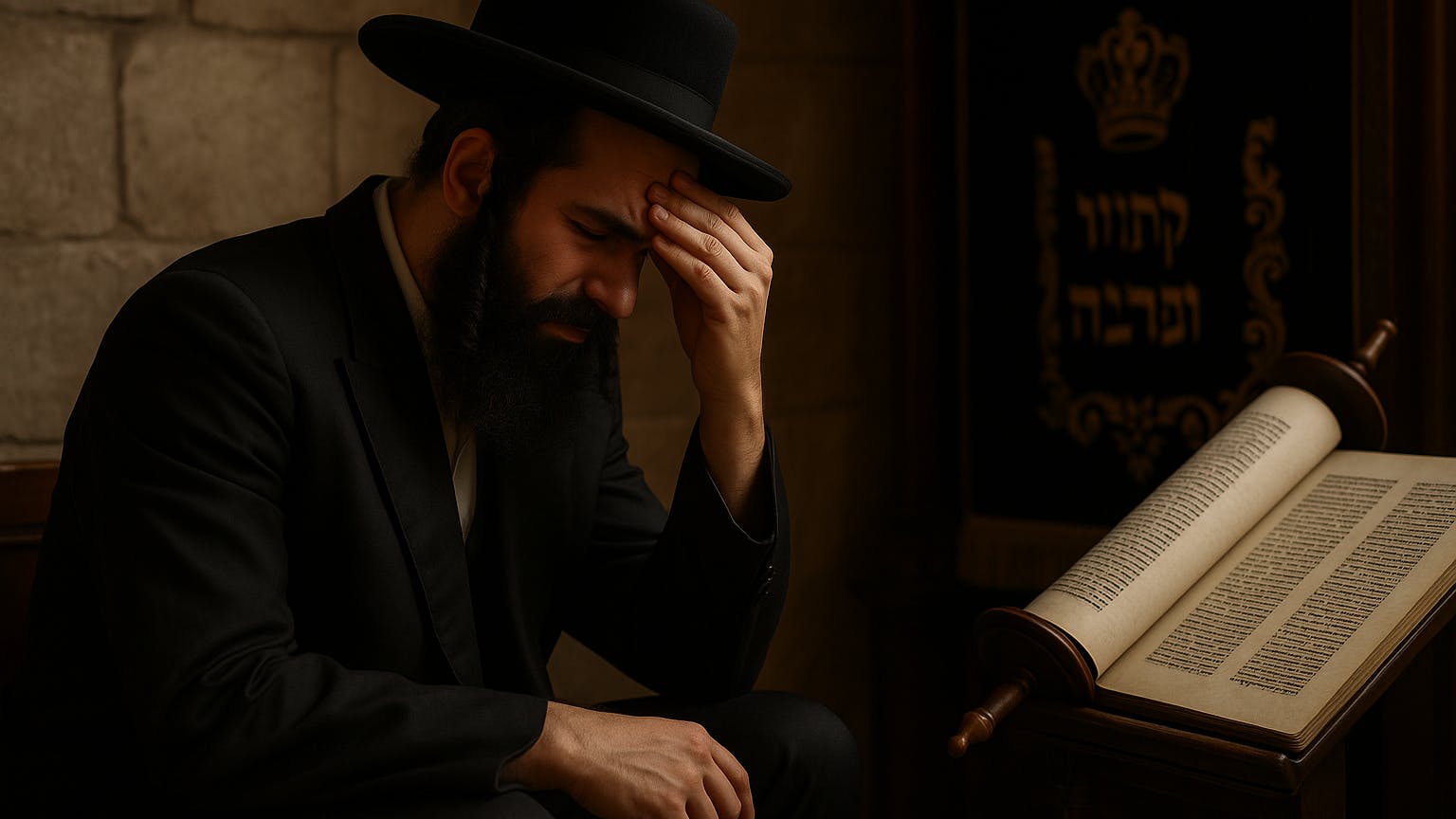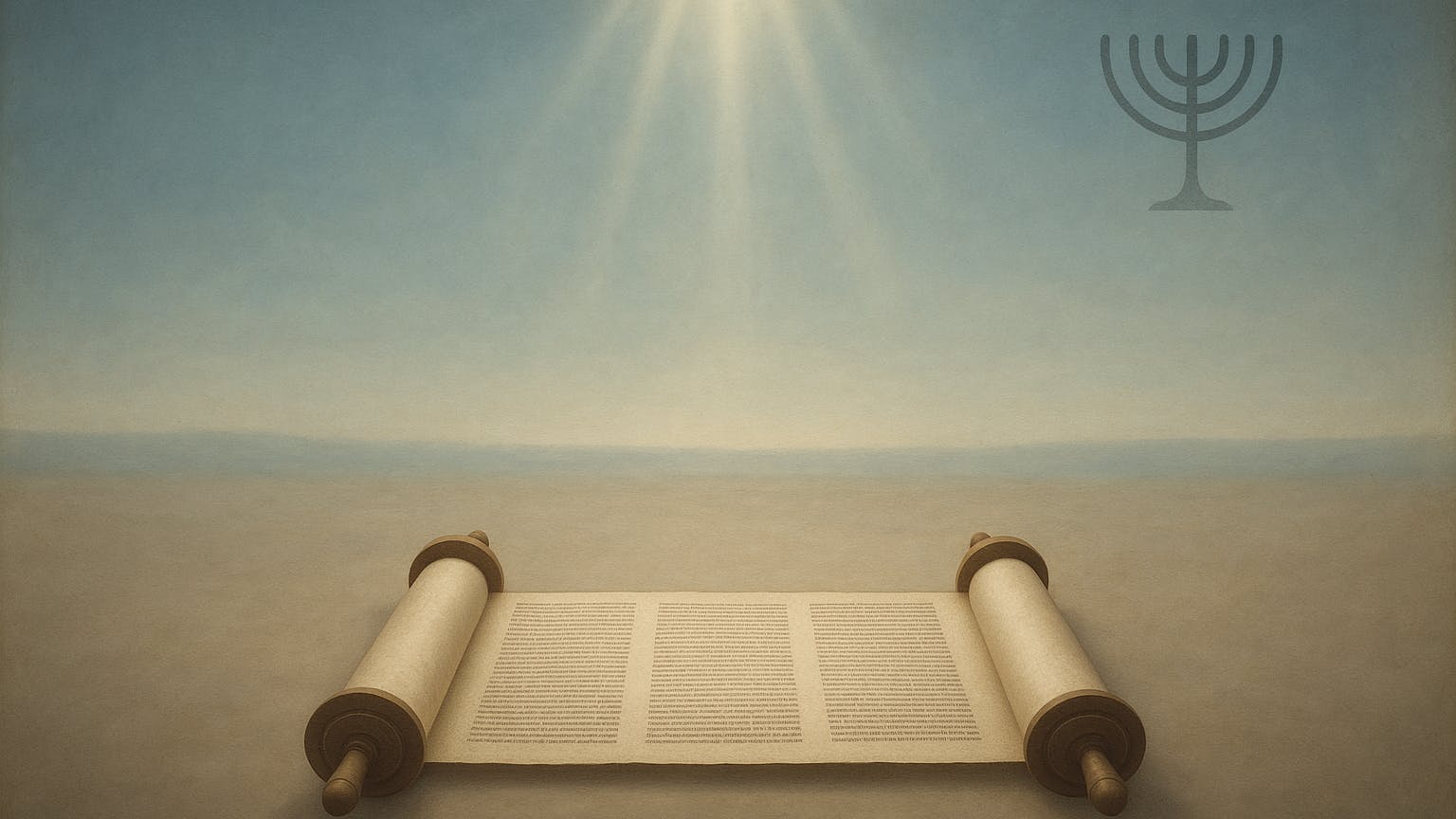It is Passover, and you and your loved ones are seated around a table fit to welcome the prophet Elijah.
The excitement is tangible as a tradition passed down through 140 generations is continued. The Haggadah is read aloud, and the story of how G-d set the Hebrews free from 430 years in slavery is told once more.
On the table is a variety of chametz free food, matzo ball soup, and of course - the seder plate. We taste the bitter maror and the sweet charoset, explaining each element between fast-paced Passover songs until we come to the roasted lamb shank.
The roasted lamb shank symbolizes the Passover lamb G-d commanded the Israelites to eat in haste the night before leaving Egypt.
Could the Passover lamb be more than just a symbol but a real precursor to a greater Passover lamb? One whose blood is powerful enough to stop death in its tracks and atone for sin forever?
The Passover lamb
Although not all Jews roast a spotless lamb on the spit on Passover eve, most will still place the roasted lamb shank (chicken leg or beets for vegetarians) on the seder plate.
The roasted lamb shank bone, the z'roa (arm), represents the lamb sacrificed and eaten the night G-d judged the firstborn of Egypt and G-d's outstretched arm that delivered them.
Here is what G-d commanded the Israelites to do in Exodus 12:3, 5, 7:
Exodus 12:3, 5, 7
"Speak ye unto all the congregation of Israel, saying, In the tenth day of this month they shall take to them every man a lamb, according to the house of their fathers, a lamb for a house. Your lamb shall be without blemish, a male of the first year: ye shall take it out from the sheep, or from the goats. And they shall take of the blood, and strike it on the two side posts and on the upper door post of the houses, wherein they shall eat it."
G-d had good reason to ask them to apply the blood of the lamb to the doorposts, as it was what separated them from the judgment that was about to befall Egypt that very night as recorded in Exodus 12:12-13:
“For I will pass through the land of Egypt this night, and will smite all the firstborn in the land of Egypt, both man and beast; and against all the gods of Egypt I will execute judgment: I am the LORD. And the blood shall be to you for a token upon the houses where ye are: and when I see the blood, I will pass over you, and the plague shall not be upon you to destroy you, when I smite the land of Egypt.”
G-d was about to judge the idols of Egypt and used the blood of the Passover lamb to separate and protect them from the same judgment. The concept of the shedding of the innocent blood of animals to protect people from judgment would appear again and become the sacrificial system through which G-d would atone for sin (Leviticus 4:35).
Why do we need a Passover lamb?
The blood of the Passover lamb was sufficient for protecting the Israelites for a single night. Could it be that since sin entered the world, G-d's master plan was to conquer sin and death forever but that the blood of animals was not powerful enough to fulfill that role?
The only one who can atone for sin eternal would have to be one who has never sinned but is fit to stand in place of Adam, taking on the judgment for sin in his stead (Romans 5:8 & 1 Corinthians 15:3)
The only sinless one is G-d Himself, making Him the perfect and only candidate to take the sin of sinful man upon Himself.
When reading the Delitzsch translation of the New Testament, you will find undeniable parallels between the Passover lamb in the book of Exodus and Yeshua as the ultimate sacrifice who gave His life to atone for the world's sins on the cross.
Here is what they have in common:
1. Pure and without blemish (Exodus 12:5): The Passover lamb had to be pure, without blemishes like cuts, bruises, or deformities. Yeshua, being sinless, was also without blemish, making Him the only one who could atone for sin and not come under judgment (1 Peter 1:18-19).
2. No Broken Bones (Exodus 12:46): The Israelites weren't allowed to break the lamb's bones as they roasted it whole. In Yeshua's suffering and death, although he was beaten, tortured, and crucified none of his bones were broken either (John 19:31-36).
3. No leftovers by morning (Exodus 12:8-10): The lamb had to be entirely consumed on the eve of Passover; none of it was to be left by morning. After Yeshua was crucified, He was taken off the cross the same evening, in contrast to the custom at the time which was to leave the bodies hanging for a few days (John 19:31).
4. The Blood of the Lamb (Exodus 12:7): The Israelites put the lamb's blood on their doorpost so God would 'pass over' them and spare them from G-d's judgment against the Egyptians. Yeshua's blood was shed on the wooden cross, and when we receive the spiritual effects of His sacrifice it covers us from the judgment of our sins (Romans 5:8-10).
Why the blood of this lamb matters
If someone asked you today to smear the blood of an animal on your doorposts, you might think that they've lost their minds, but in Moses's time everyone understood that life is in the blood, as stated in Leviticus 17:11:
“For the life of the flesh is in the blood: and I have given it to you upon the altar to make an atonement for your souls: for it is the blood that maketh an atonement for the soul.”
It was Adam and Eve who opened the door for sin to enter; it would only make sense that the price of tasting death would be death itself.
But G-d, in His mercy, did not want them to perish and experience eternal death and separation from Him. Since the price was too high for a mere human to pay, as sin demands blood G-d Himself stepped in, offering His own blood as the sacrifice that would atone for sin forever.
The parallels between the Passover lamb and Yeshua's sacrifice (1 Corinthians 5:7) on the cross are no coincidence: they are one and the same.
1 Corinthians 5:7
"Purge out therefore the old leaven, that ye may be a new lump, as ye are unleavened. For even Christ our passover is sacrificed for us."
We are enslaved in sin, like the Israelites in Egypt, and sin is a harsh taskmaster, which G-d demands payment for (1 John 2:2).
Perhaps you know you are a sinner, but despite close religious observance a barrier remains between you and G-d. Yet we can approach a holy G-d through the blood of the lamb, Yeshua (John 14:6).
And know that just as G-d didn't leave the Israelites to defend themselves against the mighty Egyptian army, He will not abandon you to cope with the guilt of your sin.
He can free you of that cruel master when you turn to Him. He will forgive you for all your sins because of the blood of the Passover lamb, Yeshua the Messiah. If you believe in Him and put His blood on the doorposts of your heart, G-d's judgment will pass over you too.
More Topics
You might alsoo be interested in these topics.




